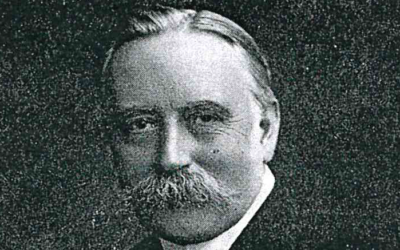Henry Forty (c.1620s?-1693) was a key figure in the early days of the Particular Baptists.[1] A Londoner...
Search Results
On Marriage in the Second London Confession 25 | Michael A.G. Haykin
For close to a millennium, the model of Christian discipleship had been centered upon the institution of the monastery/nunnery in which men and women lived celibate lives of simplicity and austerity. But the normal context of Christian discipleship in the era of the New Testament and the Ancient Church was in the realm of married life.
The first sentence of the Second London Confession of Faith | Michael A.G. Haykin
Given the very real threat posed by the Quaker movement to Calvinistic Baptist churches, it seems most probable that the strengthening of this statement on Scripture is a definite response to this situation.
On building walls and building bridges: an observation on Particular Baptist life in the British and Irish archipelago in the long eighteenth century | Michael A.G. Haykin
“One way of characterizing the change that took place in British and Irish Particular Baptist life in the course of the long eighteenth century (1680s-1830s) is along the lines of walls and bridges: the Particular Baptists transitioned from being a community of wall-builders to one of being bridge-builders.”
Andrew Fuller and Antinomianism | Michael Haykin
“The pathway to renewal and mission necessitated a literary demolition of what was a regnant theological narrative in far too many Baptist circles, namely, that of High Calvinism, which gloried in eternal justification and rejected the free offer of the gospel.”
On being Baptist, Reformed, and catholic | Michael Haykin
When I began to study the Particular Baptist heritage and to sense a call to engage in genuine ressourcement of both the theology and ethos of this tradition, I met a living paragon of this glorious tradition, namely Erroll Hulse. What a remarkable Christian leader and author he was, especially in this area of Christian unity.
“Aut Christus aut nullus”: The witness of Hugh D. Brown | Michael Haykin
Brown’s friendship with Spurgeon through the desperate days of the Downgrade Controversy over the Scriptures in the 1880s was rooted, in part, in a shared conviction of the necessity of upholding the verbal, plenary inspiration of the Bible.
The Famous Sermon by William Carey | Michael Haykin
Human strength and human schemes will fail in the expansion of God’s kingdom. It must be God’s work.
The “coffee-man in Southwark”—James Jones | Michael Haykin
The frequenting of cafes and coffee shops by many modern-day students to study, converse, and plug into the internet is actually tapping into a much older phenomenon that goes back to the late seventeenth-century and early eighteenth-century coffeehouses of England.
Joseph Stennett & Anne Dutton on the Lord’s Supper | Michael Haykin
Anne Dutton (1692–1765), a prolific Baptist author who corresponded with many of the leading Evangelical figures of the eighteenth century—including George Whitefield (1714–1770) and John Wesley (1703–1791)— was certain that in the Lord’s Supper “the King is pleas’d to sit with us, at his Table.”










